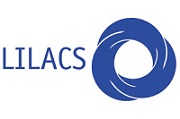About the Journal
Focus and Scope
Case reports, a specialized journal whose objective is the dissemination of knowledge from case reports, case series, case report reviews (focused on a specific case topic; treatment, diagnosis, interventions, etc.) and editorials directly related to the professional practice and education of health, social and human sciences, especially targeting researchers, professionals, educators and students.
In addition, it receives case reports that are innovative, originals and with contribution to the progress of the science. It receives case reports in unconventional spaces, of public health, among others; if identified antecedents, interventions and outcomes framed in health and with economic, social or political aspects. This category includes community health, humanitarian work, health and conflict/violence, telemedicine, digital health, among others.
Original and unpublished manuscripts that are not simultaneously submitted to another journal are accepted. These may be submitted by authors affiliated with any institution at a national and international level. Once sending, the journal reserves the right to make modifications to the original text.
Case reports does not have submission or publication charges (No APC). It is an open access and free publication. The average time of reception, evaluation, editorial management and publication is 24 weeks.
Peer Review Process
Once the manuscripts meet the formal requirements demanded by the Editorial team of the journal, indicated in the section "Guidelines for authors", and the unpublished character of the same is verified, they will be submitted to arbitration by expert international academic evaluators.
The editorial coordinator and the editor in chief will assign three or more peer expert external evaluators for each manuscript.
To be approved, the article must have at least two concepts approved (accept conditionally or accept without modifications). In case of dissent, an extra academic pair will be sent to make a final decision: accept or reject. If in the evaluation the article receives two or more concepts of rejection, it will automatically be rejected.
The evaluation of the articles is done under the modality double blind peer review, ensuring the impartiality of the concept. In this model, the reviewers do not know the identity of the authors and vice versa
Rejection% 2024: 20%
Open Access Policy
This journal provides immediate open access to its content on the principle that making research freely available to the public supports a greater global exchange of knowledge. The Journal authorizes the spreading and dissemination for academic purposes or internal use of institutions and researchers, provided that their source is acknowledged.
Case reports works with Creative Commons Attribution License 4.0 International. https://creativecommons.org/licenses/by/4.0/
This license allows others to distribute, mix, adjust and build from the works of Case reports, even for commercial purposes, if the authorship of the original creation is recognized.

Declaration of ethics and transparency
Case reports of the Universidad Nacional de Colombia accepts and adheres to the “Recommendations for the Conduct, Reporting, Editing and Publication of Scholarly Work in Medical Journals” issued by the International Committee of Medical Journal Editors (ICMJE) (www.icmje.org) and to the guidelines established by the Equator Network (Enhancing the QUAlity and Transparency Of health Research) (http://www.equator-network.org/) and the Committee on Publication Ethics (COPE) (http://publicationethics.org/) in order to guarantee the quality of scientific publications, their transparency, integrity and respect for the ethical principles that govern biomedical research. In consequence, the works sent to the Journal must be adjusted to these guidelines.
If the procedures performed during the study involved humans or animals, authors must explicitly state that they followed the ethical principles for medical research on humans of the Declaration of Helsinki (2013) and any other applicable national regulations, said documents must be duly referenced. Additionally, it must be clearly expressed that the study was approved by the ethics committee of the institution or institutions where it was carried out, and the corresponding letter of approval from the ethics committee must be enclosed.
In case of experimental studies, registration of clinical trials in a public trial’s registry at or before the time of first patient enrollment as a condition of consideration for publication is mandatory. An example of a public trial registry can be found at https://clinicaltrials.gov. The clinical trial registration number must be included in the last line of the abstract
The manuscripts must be unpublished documents that do not correspond to translations or adaptations of other sources already published. With the signed delivery of required documents, the authors also express that the manuscript has not been previously published under any modality and that it will not be submitted to other journals while the editorial committee decides to publish or reject it.
Similarity and plagiarism report
The manuscripts sent must respect the anti-plagiarism policy.
- Plagiarism is understood when an author tries to pass on the work of someone else.
- Double duplication is included, this occurs when an author reuses, whitout reference, a large part of the material of his authorship that has already been published.
In order to determine if there is plagiarism in a document (use of sources and material without proper reference) or if there is a high degree of similarity with other publications, the journal will record all the articles received to Turnitin® anti-plagiarism software. If plagiarism is detected or exceeds the 30% established, the article will not be accepted to start the publication publishing process, the document will be returned, and the report will be attached.
Sponsors
Case reports is an official publication by Facultad de Medicina of the Universidad Nacional de Colombia.
Sources of Support
Universidad Nacional de Colombia
Facultad de Medicina
Bogotá, Colombia
Journal History
Case reports (e-ISSN: 2462-8522) is a specialized official publication by the Universidad Nacional de Colombia, in digital versions, peer-reviewed, in open access, published since 2015, whose objective is the dissemination of case reports, reports of adverse events, case series, reviews and editorials; which are relevant for the advancement in education, reflection and action of the health sciences, social sciences and related.
Reviewer Guidelines
The submitted manuscripts must strictly comply with all the indications for the “Guidelines for authors” section.
- Reference: Vancouver
- Keywords: DeCS – MeSH
- Evaluation based on the checklist for CARE case presentation (https://goo.gl/YLb5pK)
- Importance of the content of the work and relevance for the scientific community based on the reviewer's experience.





























